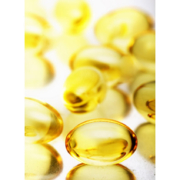Research Update on Probiotics and Adult Allergies
Researchers recruited a total of 95 adults, ages 19 to 65, with allergic rhinitis for a double blind, randomized, placebo-controlled clinical trial; all the subjects were from two hospitals in South Korea. They were not allowed to take their usual medication to treat seasonal allergies.
In the experimental group, 47 subjects received the probiotics, and 48 subjects were in the placebo group. The probiotics used in the study was a novel blend called NVP-1703. The variables the researchers selected to track were markers associated with the immune response such as IgE and interleukins. They also tracked the symptoms of the subjects by having them complete daily diaries noting responses such as sneezing, itching, nasal congestion, runny nose, etc. The subjects also took standardized written allergy questionnaires.
The researchers found significant positive changes in the questionnaire assessment from baseline through weeks one, three, and four between the probiotic group and the placebo group. The IgE levels and serum IL-10 levels were significantly improved between the probiotic and the placebo group.
The improvement in questionnaire results meant that the subjects that were taking the probiotics saw their allergy symptoms decrease. By assessing the immune responses, they saw that somehow the probiotics stimulated the production of IgE and IL-10. Both of those allow the immune system to control symptoms associated with allergic rhinitis.
The researchers concluded that this blend of probiotics could be beneficial to treat seasonal allergies; I’m not sure I would go that far since the study contained fewer than 100 subjects. I would say that it was nice progress, although there’s still more to do. But if you have allergies, taking your probiotics regularly may be helpful for your allergy symptoms as well as all the other benefits.
What are you prepared to do today?
Dr. Chet
Reference: Nutrients 2020. 12: 1427-41.; doi:10.3390/nu1205142









